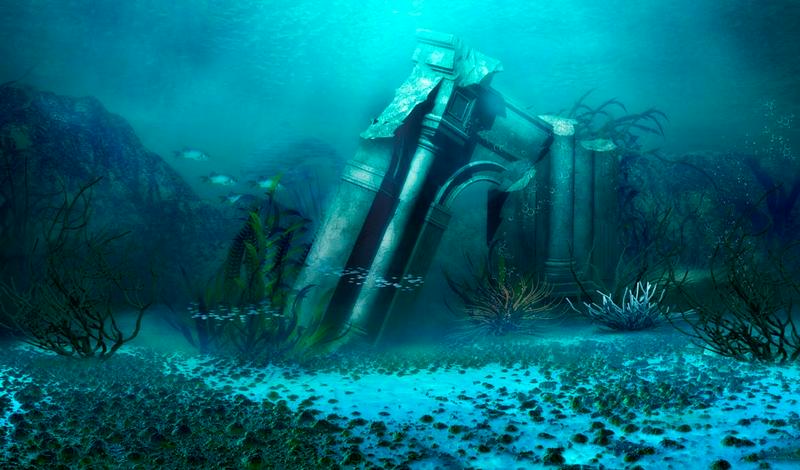Atlantis: Lost City or Mythical Island?
By | May 10, 2019

Often with folklore and legend, it is impossible to uncover the primary source. Either the original texts are lost, or the stories are passed down from one generation to the next without written documentation. However, that is not the case with the story of Atlantis. Its origin has been traced to Plato’s dialogues, “Timaeus” and the “Critias,” which were written in 360 B.C. While these dialogues are received as fictional, the belief that Plato’s Atlantis was a real location has persisted throughout the years.
In Plato’s dialogues, the legend of Atlantis is told by Critias, who heard it from his grandfather. The events of the story allegedly occurred more than 9,000 years before the time of Critias and were passed down orally. However, there is no evidence that the legend of Atlantis existed outside of Plato’s dialogues. No other philosopher wrote about it before Plato and Aristotle were recorded as saying Plato could “conjure nations out of thin air.” This seems to suggest that Atlantis existed only in Plato’s mind.

Plato describes Atlantis as a technologically advanced civilization, corrupted by power. In geographical terms, it is an island “larger than Libya and Asia Minor put together” and it is located in the Atlantic “just beyond the Pillars of Hercules.” Many searching for proof of its existence have narrowed its location to the vicinity of the Strait of Gibraltar. In Plato’s story, the inhabitants of Atlantis grew too ambitious, conquering much of Africa and Europe. They were eventually driven back by Athenian armies and the gods punished them with earthquakes and floods until the entire island sank into the ocean.

The legend of Atlantis was just that until Ignatius Donnelly published a book in 1882 entitled The Antediluvian World in which he asserted that the evolution of technology can be traced back to Plato’s lost island. Donnelly believed that Plato’s story was factual, with the exception of the divine elements. Eventually, other writers took on Donnelly’s theories, each adding their own new twist to the legend. Even among those who believe Plato’s story was fictional are people who insist there must be some truth or that Atlantis was at least inspired by a real place.

Naturally, the only way to prove Atlantis is a real place would be to find it. After all, if the wreckage of the Titanic can be found on the ocean floor, then surely an entire island should not be able to stay hidden. As it turns out, there have been multiple “discoveries” of the lost city. Most of these can be ruled out by the simple fact that they are not in the Atlantic Ocean where Plato specifically stated it was located. The people behind these discoveries often found a few details that matched Plato’s description and ignored the ones that did not. The most widely accepted Atlantis discovery is the Greek island of Santorini, which is now a half-submerged caldera after being destroyed by a volcanic eruption sometime around 1600 B.C.

Despite the many alleged discoveries of Atlantis, there is just not enough evidence at this point to support the theory that it is a real place. With that being said, no one can say for sure where Plato got his ideas and therefore it is likely that Atlantis was inspired by some place like Santorini. However, regardless of where he got his inspiration, it seems that the legend of the lost city of Atlantis is more fiction than fact.

